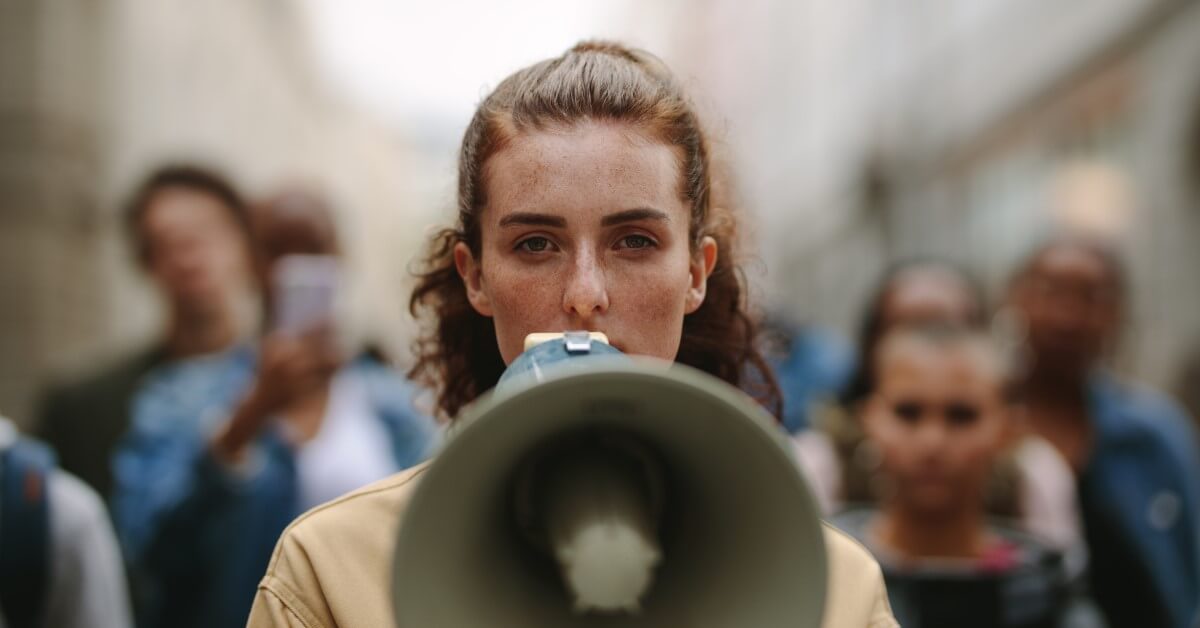Overview
Can major political/societal events impact sleep and emotional and physical health?
Have you ever stressed about current events, like a critical election or reports of geopolitical strife overseas? In that case, the anxiety around this event may have spilled over into your sleep.
While we are all aware of this potential negative impact on our overall well-being, little research has been done to determine a definitive link until recently.
A new study done by researchers at the Beth Israel Deaconess Medical Center has shed light on evidence that divisive geopolitical events can negatively influence factors related to sleep, emotional well-being, and alcohol consumption.
The research team surveyed 437 participants in the United States and 106 international participants every day between October 1–13, 2020 (before the November 3 U.S. election) and October 30–November 12, 2020 (post-election).[1]
Duration and quality of sleep, alcohol consumption and overall stress were self-monitored and reported back by the participants.
.
A Better Understanding Surfaces
U.S. and non-U.S. study participants showed decreased sleep times, with the U.S. respondents stating a significant drop in time spent sleeping in the days immediately around the election and frequent awakenings on election night itself.
Alcohol consumption increased for the U.S. participants significantly during the study period that included Halloween, election day, and the day that the election was called (November 7), with no change in alcohol consumption reported by their non-U.S. counterparts.
Furthermore, the research revealed evidence that poor sleep may influence civic engagement and participation in elections, pointing to a possible link between sleep and an election outcome.
What Does This Tell Us?
Chances are that you already know how geopolitical events and upheavals can cause enough worry and anxiety to impact several aspects of our health. Sleep – one of the most sensitive aspects of health regarding cognitive perception – is usually one of the first markers to be affected.
This finding is not at all surprising. Anxiety is a known factor for inducing negative behavioral changes.
Anxiety related to a time-limited event, like an election, isn’t necessarily manifest as a chronic condition. However, it can still trigger unhealthy effects, such as sleeplessness and increased alcohol consumption, further exacerbating sleep issues.
The 4-7-8 Breathing Technique
Worrying about events with global consequences can lead to increased secretion of stress hormones, like adrenaline and cortisol, causing the uncomfortable fight-or-flight response that may have served our distant ancestors well but causes unnecessary anxiety today.
If you find yourself consumed by a stress-inducing event, the 4-7-8 breathing technique, also known as “the relaxing breath,” is an excellent way to calm the mind.[2]
This technique involves three steps to be performed before bedtime. The steps are done four times, starting with a complete exhalation via the lips, generating a whoosh sound.[3]
- 4 Counts: Close your lips and take four slow, deep breaths through your nose
- 7 Counts: Hold your breath for seven counts
- 8 Counts: Exhale through your lips for eight counts, generating a ‘whoosh’ sound
Conclusion
Sleep is a precious commodity, with rates of insomnia rising steadily in the U.S. and across the globe. Major events that can cause worry or insecurity about the future are bad enough during waking hours but can wreak havoc on sleep for the event and beyond.
Fortunately, there are ways to manage the cognitive effects of significant events. By practicing simple breathing techniques to alleviate some immediate worry to Cognitive Behavioral Therapy for Insomnia (CBT-I) for longer-term sleep problems, help is out there.
References:
- Meck, C. (2022, November 7). New research suggests political events impact sleep. BIDMC of Boston. Retrieved November 23, 2022, from https://www.bidmc.org/about-bidmc/news/2022/11/new-research-suggests-political-events-impact-sleep
- Pramanik, Pudasaini and Prajapati. (2010). Immediate effect of a slow pace breathing exercise BHRAMARI pranayama …Immediate effect of a slow pace breathing exercise Bhramari pranayama on blood pressure and heart rate. Retrieved November 23, 2022, from https://www.nmcth.edu/images/gallery/Editorial/49tvwt_pramanik.pdf
- Vierra, J., Boonla, O., & Prasertsri, P. (2022, July). Effects of sleep deprivation and 4-7-8 breathing control on heart rate variability, blood pressure, blood glucose, and endothelial function in Healthy Young Adults. Physiological reports. Retrieved November 23, 2022, from https://www.ncbi.nlm.nih.gov/pmc/articles/PMC9277512/






